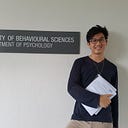Person Centered Therapy as Primary Orientation
I adopt Person Centered Therapy (PCT)as my primary approach to psychotherapy, and I use it to assimilate and accommodate my learnings from other schools and areas. While I prioritize attuning to the client’s world and needs in session, I believe that PCT on its own is necessary and sufficient to create the meaningful change.
Grounding in Humanistic-Existential Theory
I have influences from the humanistic-existential school of thought from thinkers such as Irvin Yalom, Rollo May, and Abraham Maslow. Even Carl Rogers himself was a pretty existentially inclined thinker. Most of my thinking was shaped by Evone Phoo (HELP University) and Todd DuBose (The Chicago School of Professional Psychology).
I resonate the most with Yalom’s idea of viewing existentialism not as a distinct school of thought, but rather an extension to any therapy modality. Existential givens can rise in any case of therapy, often hidden beneath so-called ‘presenting problems’. The idea of authenticity is also effectively synonymous to congruence, which made existential therapy easy to get on board with as a person-centered practitioner.
Adlerian Therapy/Individual Psychology
Inspired by Ichirou Kishimi and Fumitake Koga’s books, I once listed Adlerian as my theoretical orientation, but I have never managed to practice it as a whole as it requires too much directivity and expertise on my part. That being said, I have a lot of interest and respect for Alfred Adler’s theory and I found its primary philosophies to be very consistent with person-centered theory. I suspect Carl Rogers himself might have been influenced in some ways by Adlerian philosophy.
Positive Psychology
Most of my academic life as a psychology student has been spent mostly reading positive psychology and the ‘good life’. I have a developed a keen eye for constructs such as gratitude, self-compassion, contentedness, and eudaimonia, and often make recommendations for clients which involve exercises taken from positive psychology interventions.
Compassion-Focused Therapy and Meaning Centered Counselling
These two are more modern approaches developed from molding the ancient virtues of compassion and meaning-seeking into CBT-inspired frameworks. I am currently still slowly picking them up and assimilating them into person-centered practice, but I have no doubts about the importance and robustness of these approaches.
